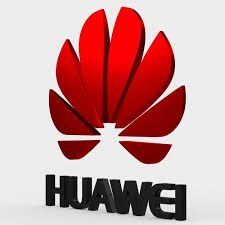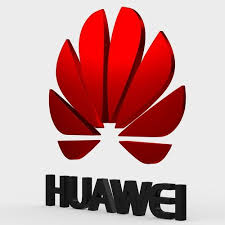
The pricing appeal of the products of Huawei can hold sway over security concerns in developing countries – which can be sources of solace for the Chinese telecom equipment manufacturer as it faces flack in the West over allegations of technology theft and espionage.
India – the second largest smartphone market in the world, is a prospect for Huawei to participate in construction of the next generation mobile networks known as 5G. Huawei was invited to participate in v in December by the Indian Prime Minister Narendra Modi's government together with its rivals such as Nokia, Samsung and Ericsson.
This invitation assumes importance because Huawei has been banned from participating in the construction of 5G mobile networks in the United States, the United Kingdom, Canada, Australia, New Zealand and Japan because of security concerns.
Experts say that the Shenzhen-based company could target India as an alternative market to the West because of the price sensitiveness in India.
According to Amitendu Palit, a senior fellow specializing in trade and economic policy at the National University of Singapore, the range of options for domestic cellular operators in India could be increased by the use of Huawei's 5G equipment, which can be a strategic benefit for the country. Palit said that since the prices of Huawei equipment is expected to be cheaper than those of its rivals, it could be welcomed in India.
"Indian companies have found that Chinese-made equipment is the key to their ability to provide the services they do at the prices that are, perhaps, the lowest in the world," said Manoj Joshi, who is a distinguished fellow at Indian think tank Observer Research Foundation.
The Indian government has announced plans to put in 5G technology instead of the current 4G technology for mobile networks across the country by 2019. However, the largest of the domestic carriers including Vodafone Idea and Bharti Airtel have requested the government to delay that target by a year.
And according to Joshi, there can be a situation where there would be a difference in 5G standards between the developing and developed world is India and other emerging markets welcome and accept Huawei equipment while some of the developed countries of the West keep its doors shut on the Chinese company. He said that such a situation would mean that the global telecom sector would be divided into two separate technological spheres.
However, there can be US pressure on India for not allowing Huawei into the country following the announcement of criminal charges against the company by the US Department of Justice and the CFP of the company Meng Wanzhou, who is also the daughter of the founder of the company. It is widely believed that this measure by the Trump administration is a tactic to pressurize China over the larger trade dispute. Allies of the US have been advised by US against using Huawei equipment and some of the allies have agreed with Washington.
"India will not be unaffected by the technology war between America and China," C. Raja Mohan, nonresident senior fellow at Carnegie India, said in a recent note. "As Washington goes after Huawei, the crown jewel of China's technology companies, Delhi's own exposure to the company will come under scrutiny."
The Indian government is "best placed to make its own choices" on matters of domestic economic development "regardless of what it might mean for some other countries", believes Palit.
"Amidst the new global pushback against Huawei and India's own plans to introduce 5G mobile technology, Delhi might have to revisit the old arguments and take a fresh look at its relationship with the Chinese tech giant," said Mohan.
(Source:www.cnbc.com)
India – the second largest smartphone market in the world, is a prospect for Huawei to participate in construction of the next generation mobile networks known as 5G. Huawei was invited to participate in v in December by the Indian Prime Minister Narendra Modi's government together with its rivals such as Nokia, Samsung and Ericsson.
This invitation assumes importance because Huawei has been banned from participating in the construction of 5G mobile networks in the United States, the United Kingdom, Canada, Australia, New Zealand and Japan because of security concerns.
Experts say that the Shenzhen-based company could target India as an alternative market to the West because of the price sensitiveness in India.
According to Amitendu Palit, a senior fellow specializing in trade and economic policy at the National University of Singapore, the range of options for domestic cellular operators in India could be increased by the use of Huawei's 5G equipment, which can be a strategic benefit for the country. Palit said that since the prices of Huawei equipment is expected to be cheaper than those of its rivals, it could be welcomed in India.
"Indian companies have found that Chinese-made equipment is the key to their ability to provide the services they do at the prices that are, perhaps, the lowest in the world," said Manoj Joshi, who is a distinguished fellow at Indian think tank Observer Research Foundation.
The Indian government has announced plans to put in 5G technology instead of the current 4G technology for mobile networks across the country by 2019. However, the largest of the domestic carriers including Vodafone Idea and Bharti Airtel have requested the government to delay that target by a year.
And according to Joshi, there can be a situation where there would be a difference in 5G standards between the developing and developed world is India and other emerging markets welcome and accept Huawei equipment while some of the developed countries of the West keep its doors shut on the Chinese company. He said that such a situation would mean that the global telecom sector would be divided into two separate technological spheres.
However, there can be US pressure on India for not allowing Huawei into the country following the announcement of criminal charges against the company by the US Department of Justice and the CFP of the company Meng Wanzhou, who is also the daughter of the founder of the company. It is widely believed that this measure by the Trump administration is a tactic to pressurize China over the larger trade dispute. Allies of the US have been advised by US against using Huawei equipment and some of the allies have agreed with Washington.
"India will not be unaffected by the technology war between America and China," C. Raja Mohan, nonresident senior fellow at Carnegie India, said in a recent note. "As Washington goes after Huawei, the crown jewel of China's technology companies, Delhi's own exposure to the company will come under scrutiny."
The Indian government is "best placed to make its own choices" on matters of domestic economic development "regardless of what it might mean for some other countries", believes Palit.
"Amidst the new global pushback against Huawei and India's own plans to introduce 5G mobile technology, Delhi might have to revisit the old arguments and take a fresh look at its relationship with the Chinese tech giant," said Mohan.
(Source:www.cnbc.com)





